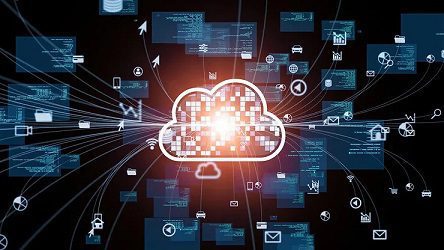Revolutionizing Store Security: AI facial recognition technology is bringing “airport-style security” to UK retail stores. This cutting-edge technology, designed to reduce shoplifting and violence, has drawn praise and criticism from stakeholders, raising concerns about privacy and biases.
Store managers can improve security with AI facial recognition technology. This innovative technology lets managers analyze security camera footage in real time to quickly identify thieves and other criminals on their premises. The Facewatch system, designed for this purpose, records video of all store visitors. The system uses advanced algorithms to compare facial data to a large database of potential threats, including store-related criminals.
However, increased security has raised privacy concerns. Critics say “airport-style security” for regular shoppers is unethical. Biometric data collection without consent has raised concerns about public privacy.
Facewatch has robust protocols to fix identification errors because AI technology has biases and mistakes. Misidentified offenders can challenge their identifications to be removed from the database. Critics stress the need to address AI algorithm biases and treat everyone equally to avoid unintended consequences.


READ MORE: Inferno Unleashed: Brace for Unprecedented Heatwave
Retailers face a complex problem in shoplifting. AI facial recognition technology can help, but experts advise against relying on it. They recommend combining preventive measures with socioeconomic initiatives to reduce shoplifting. Stores can discourage such behavior and build community trust with a holistic approach.
To protect privacy and rights, governments worldwide are regulating AI technology. The European Parliament banned real-time AI-powered facial recognition in public spaces to balance security and privacy. Responsible implementation, ongoing evaluation, and thoughtful regulations are needed to maximize the benefits of AI facial recognition technology while minimizing risks and protecting human rights.
AI facial recognition in UK stores changes store security. It has many benefits, but privacy and bias concerns have raised important questions. Collaboration, transparency, and careful regulation are needed to balance security and privacy rights.
Our Reader’s Queries
What is the concept of retail security?
Retail security encompasses the measures taken by retailers to ensure the safety of shoppers and staff while minimizing the chance of theft. These measures may involve the use of CCTV cameras, employing retail security personnel, and utilizing effective merchandising and store layout methods known to deter theft.
What is the meaning of store security?
Retailers implement security measures to ensure a safe shopping environment and prevent theft, shoplifting, vandalism, and organized crime. These measures include surveillance systems, security personnel, and anti-theft devices to protect store and merchandise.
What is a retail security guard?
The presence of security officers is crucial for ensuring the safety of retail locations. Their responsibilities encompass tasks such as monitoring customer behavior, conducting regular patrols, controlling access points, addressing emergencies, and communicating any noteworthy incidents to the management team.
What is the meaning of loss prevention?
Loss prevention includes all strategies aimed at minimizing a company’s losses stemming from theft, fraud, and operational mistakes. The main objective is to eradicate avoidable losses and safeguard profits. While commonly associated with retail, it is also present in various other business settings.

